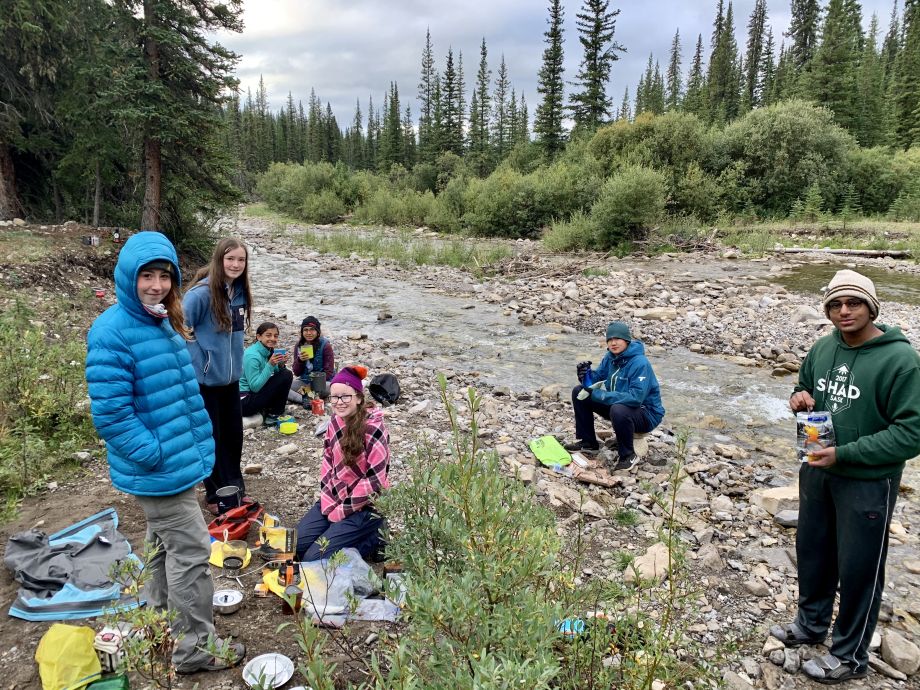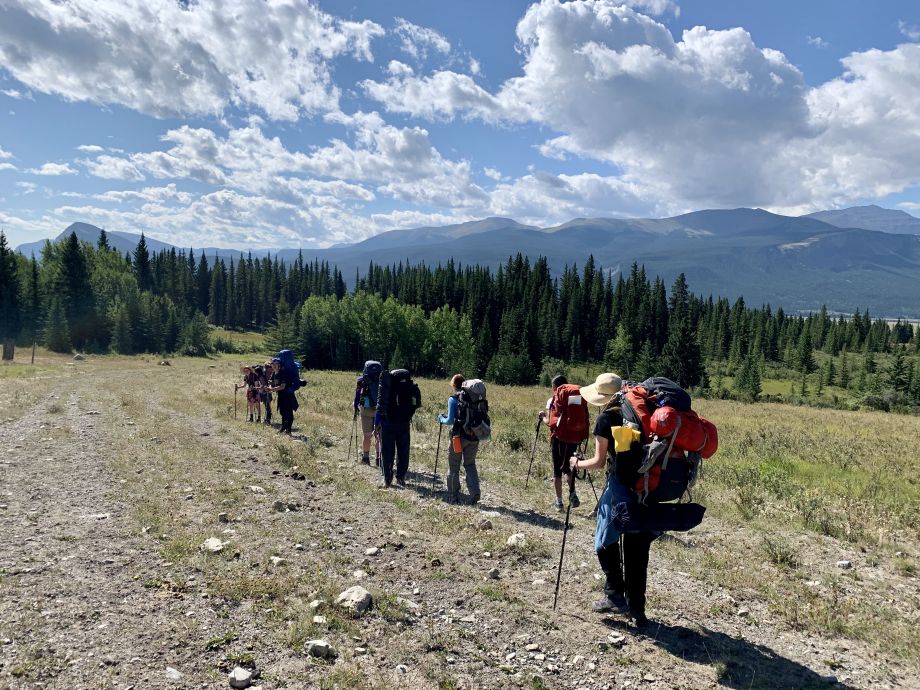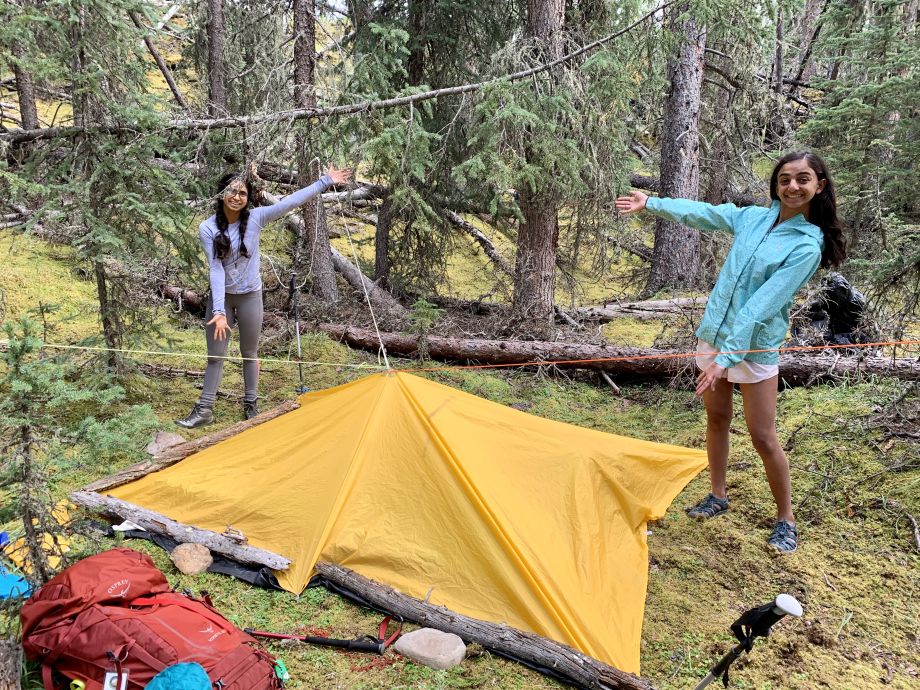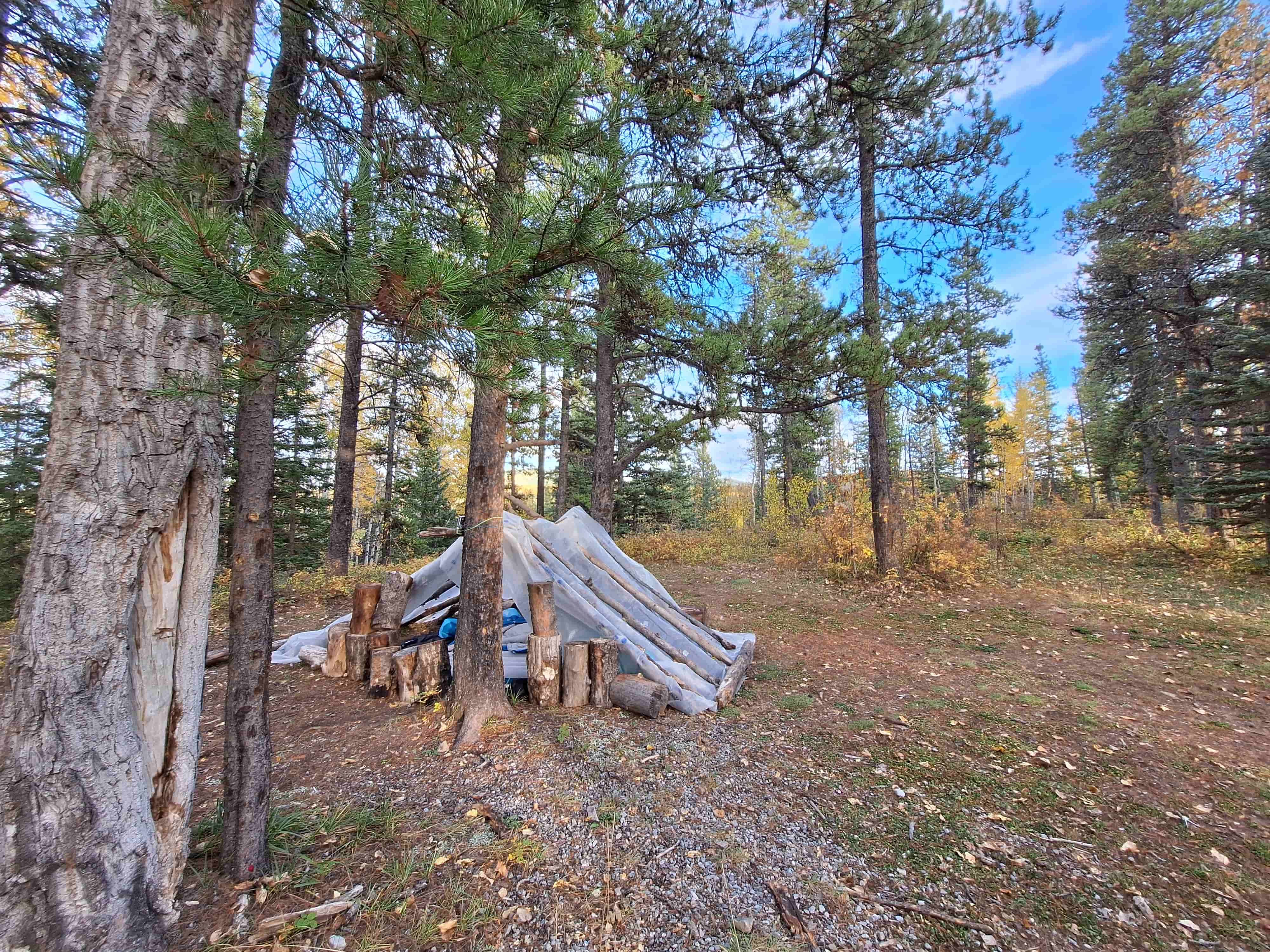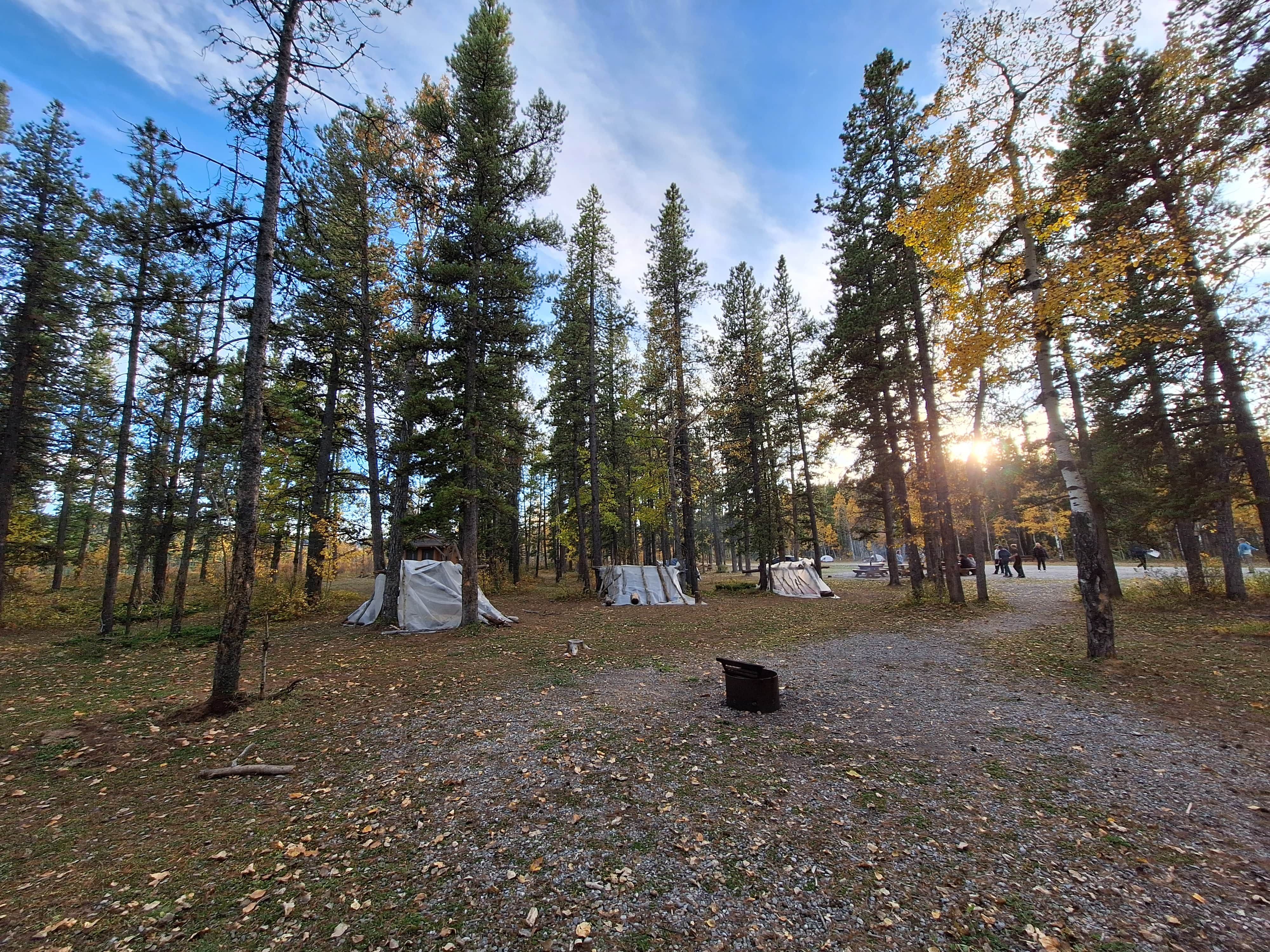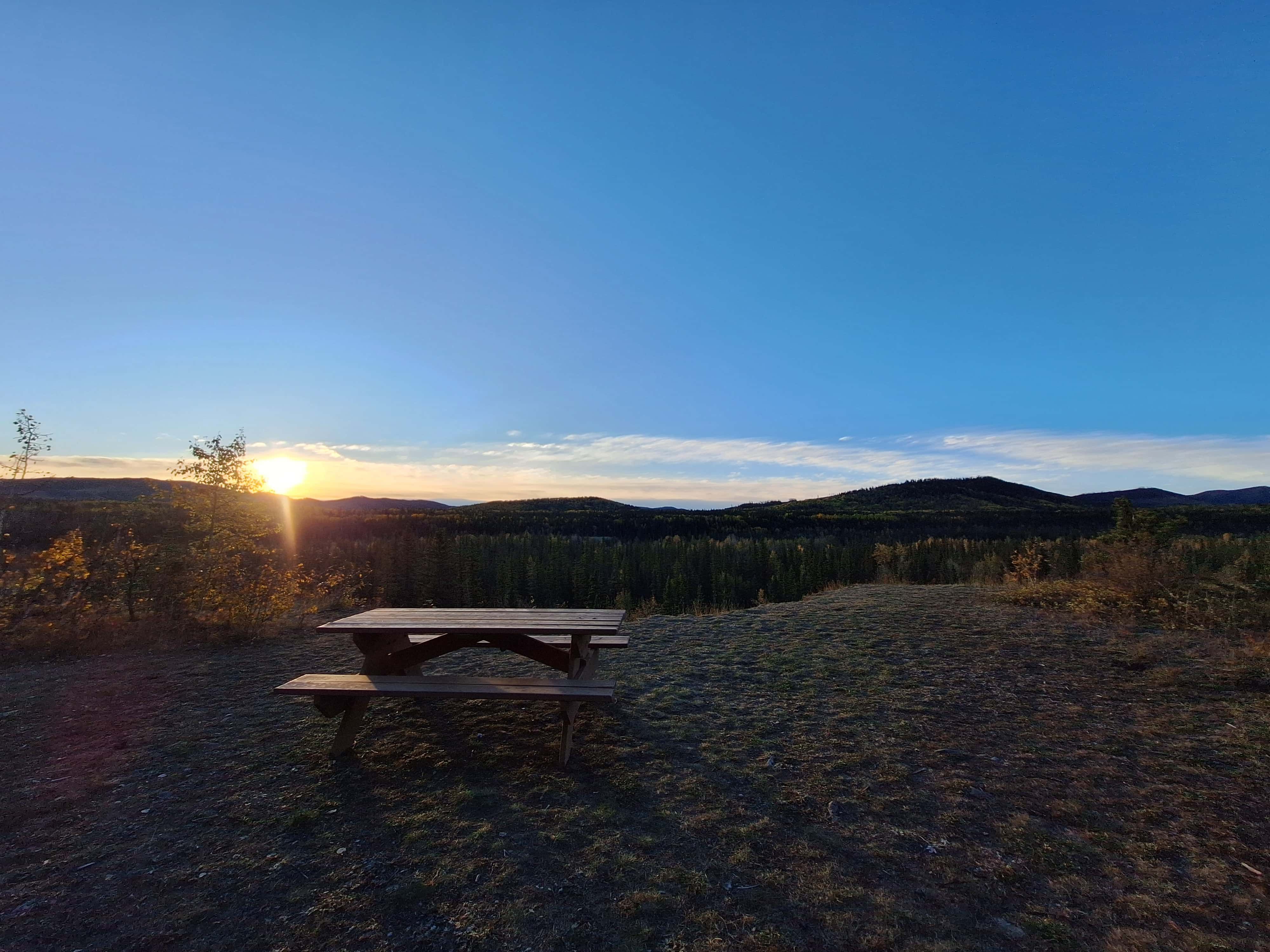Wildland Overnight
Wildland Overnight
The Wildland Overnight Program can be booked from September to mid-October and during the months of May and June.
This program is offered in two formats:
- 2 days / 1 night
- 3 days / 2 nights
Centered around the theme of wilderness survival skills, the Wildland Overnight is the perfect way to cover the basics and get comfortable in the outdoors. The students will build their own shelters to sleep in out of natural materials found around the campsite. They will also develop essential outdoor skills under the guidance of our experienced guides.
Participants will learn how to stay safe in bear country, including how to recognize and avoid hazardous situations. Throughout the experience, students will also learn about the ecoregions, wildlife and habitats of the area all while enjoying a variety of fun activities and games.
- Grades 6 to 12
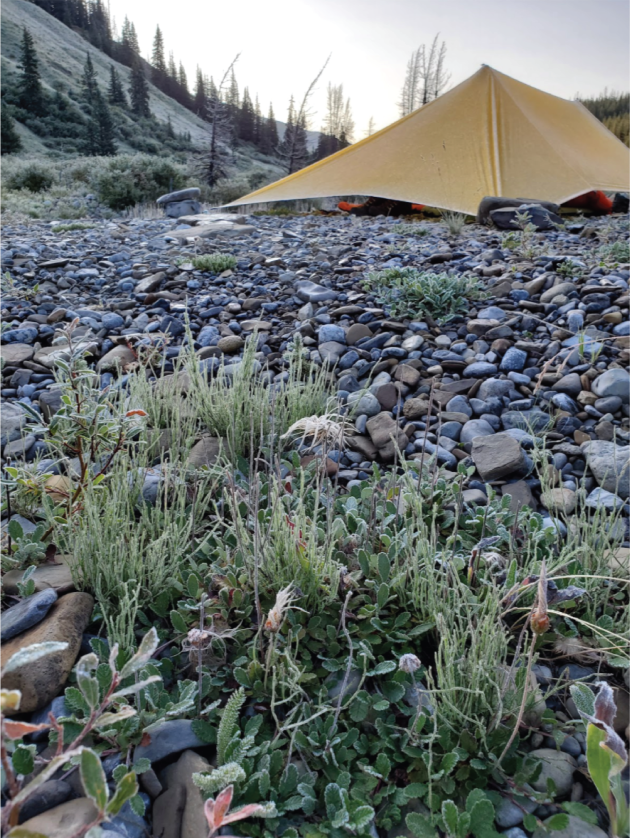
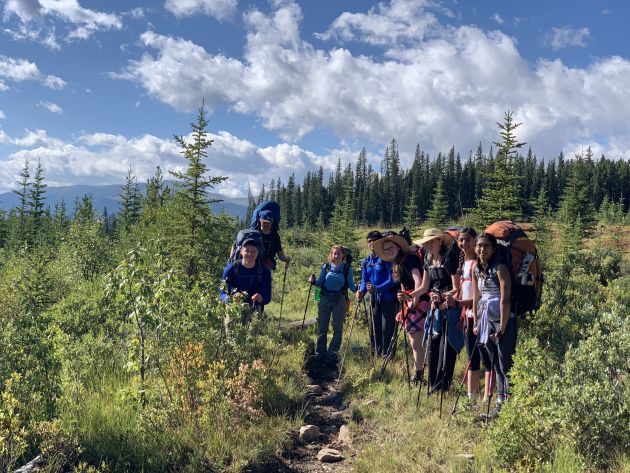
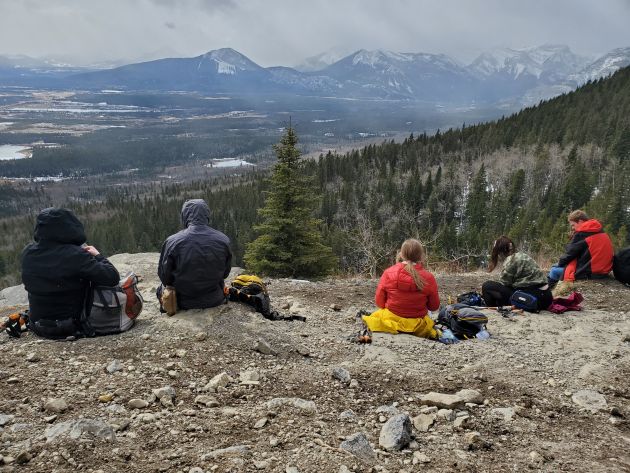
Activity Choices
Choose 2 from the following
1. Fire Lighting
In this activity station, the students will learn about the key ingredients of fire and experiment with Ferro Rods. They’ll put their new skills to the test in a friendly competition where they will need to combine strategy and technique to light a fire.
2. Orientation
In this activity station, students will become familiar with the different parts of a compass and how to take and follow bearings. In small groups, they’ll create and navigate a course using a sequence of bearings.
3. Bear Hangs
This activity station will deepen students’ understanding of being bear aware. They’ll learn how to store scented items by setting up a proper bear hang, an essential skill for backcountry travel.
Itinerary
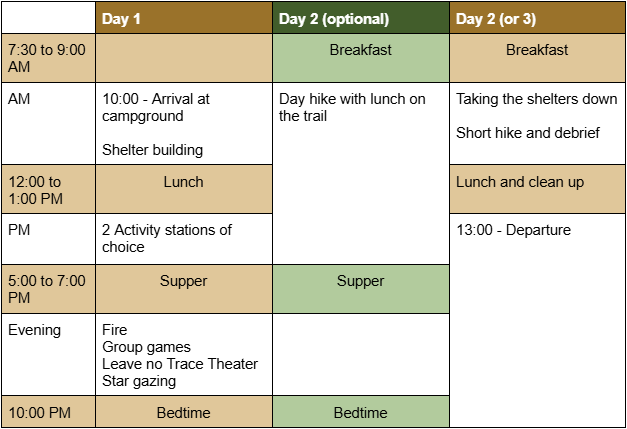
Times displayed are flexible
- Teachers will provide lead guide with any medical and behavioural concerns among group members
- Teachers are expected to be present at all activities and during meal times
- Teachers are expected to ride on the bus with the students
- Teachers are expected to organize transportation to and from program location
- Teachers will be required to arrange for volunteers to comply with standards
- Transportation and costs associated with it, to and from the program location, are the Teachers responsibility.
- Teachers are not expected to pay program fees
- Teachers and volunteers are also included in the program fee, as long as they do not exceed a 1:10 ratio. If more volunteers are being included they will be charged the student program fee
- Volunteers will be expected to comply with this list of expectations
- Teachers will be responsible for any behavioral discipline during the trip
- COA guides are not responsible for any additional discipline action required beyond scheduled activities
- COA cannot be relied on to meet female and male ratios for adults vs. students
- COA guides must be informed of any incidents or medical concerns during trip
- COA reserves the right to cancel a scheduled activity/program due to any safety or unresolved discipline issues
- COA reserves the right to deny student participation in an activity due to safety concerns, therefore students are expected to have the adequate gear and clothing for participation in the prevailing weather conditions
- Programming will be discussed ahead of time
Your program fee includes all equipment for games and COA educational sessions, and COA guides of a maximum ration of 1:14. Guides will carry a first aid kit, 2-way radios, bear spray, satellite communication device, maps of the area, and guide tarps.
Your program fee also includes campground fees, emergency sleeping bags, tents, spare sleeping pads, on site emergency vehicle, potable water, group cooking utensils (i.e. can opener, spatulas, knives etc.) pots, griddles, serving bowls, washing soap and dish towels (note: students will be responsible for their own eating utensils which need to be reusable), two 2 burner propane stoves, propane, recycling bin and a whole lot of fun!
COA does not provide food!
COA does not provide transportation!
Groups are responsible for personal gear and all meals.
Students personal gear should include (REQUIRED!):
PLEASE DO NOT PACK ANY COTTON HOODIES OR PANTS.
- Warm Sleeping Bag.
- Sleeping Pad
- Pillow
- Long underwear
- Other layers of clothing
- Fleece or other warm pants
- Underwear
- Wool or wicking socks
- Fleece or other warm jacket
- Toque and neck gaiter
- Mitts or gloves
- Rain jacket
- Rain pants
- Sturdy hiking boots or hiking shoes
- Camp Shoes
- Personal toiletries
- Sunglasses
- Sunscreen
- Reusable bowl, plate, cup and utensils
- Leak proof water bottle
- Hat
- Flashlight/Headlamp
- Backpack
Optional Items:
- Shorts/ T-shirt
- Bug Spray
- Garbage bags
- Bandana
- Camera
- Notebook
- Playing Cards
Rates & Availability
- 2 Days 1 Night: $160 / Student
- 3 Days 2 Nights: $200 / Student
- Teachers and Parent Volunteers are free
- Minimum 20 participants, Maximum 45
- Program does not include transportation
Contact our Youth Program Director at
Cancellation Policy
- Notice of cancellation is required no later than 45 calendar days prior to the program start date. Cancellations after this deadline will result in forfeiture of a $400 cancellation fee, plus any campground fees incurred.
- There is a NO REFUND policy on camping fees 45 Days prior to your outing. If canceling your trip after 45 days it will result in a fee specific to each campground and length of trip.
Please confirm your final group size at least 14 days prior to your program date so that we can make sure enough guides are on hand for your group. The minimum number you will be charged for is the number of confirmed participants. Decreases of 10% will be permitted up to 24 hours prior to the departure date.
Book Here
Frequently Asked Questions
Of course! We’d love to design the perfect educational program for you and your group. The sky is virtually the limit! Please contact us directly to discuss and create your custom adventure today!
